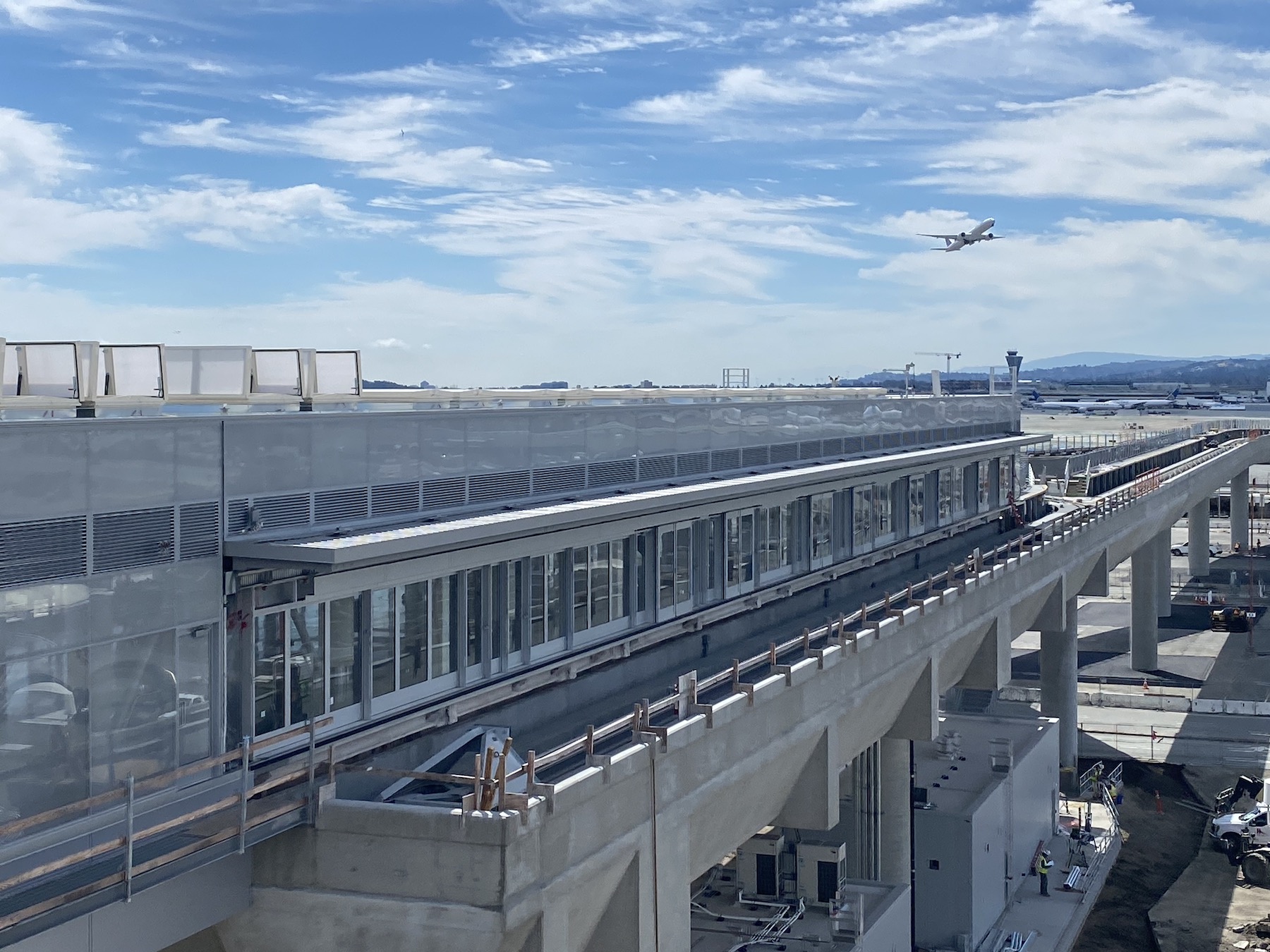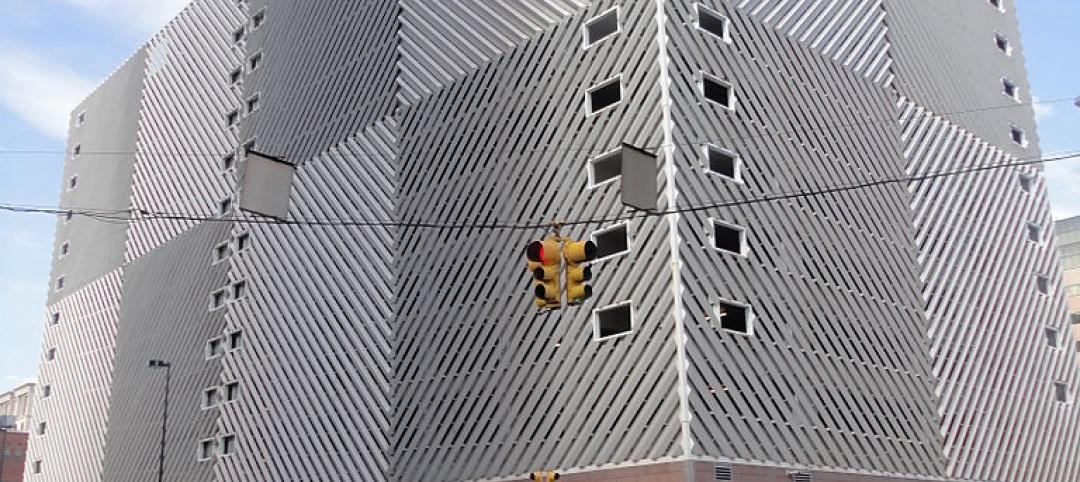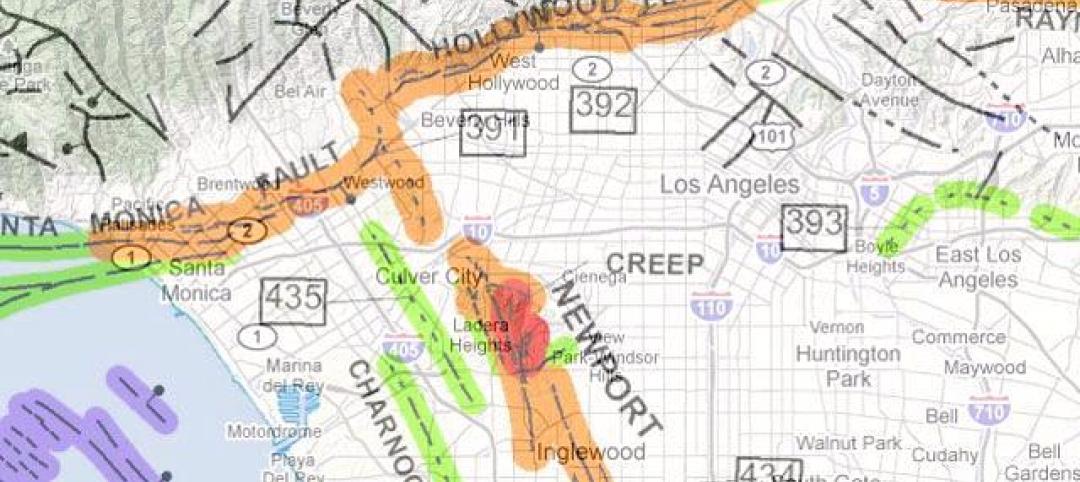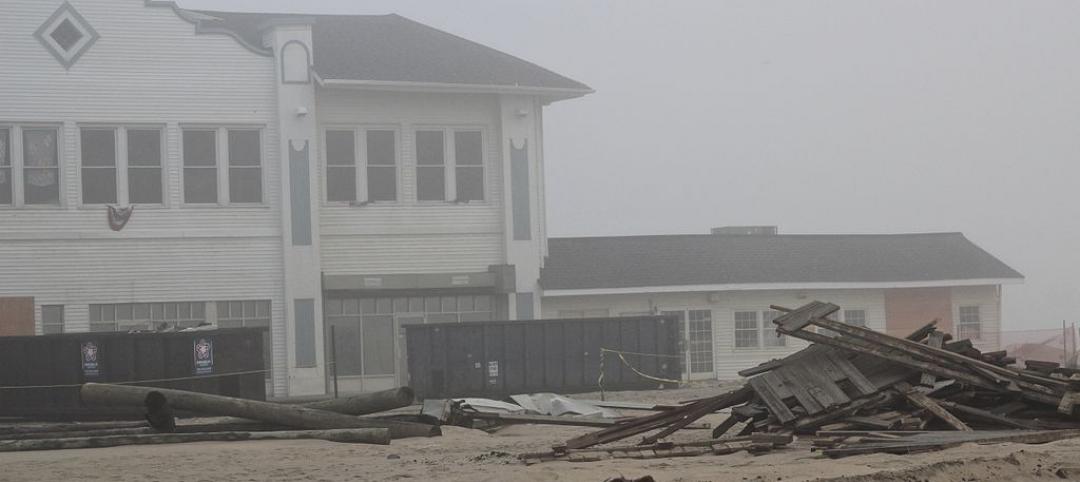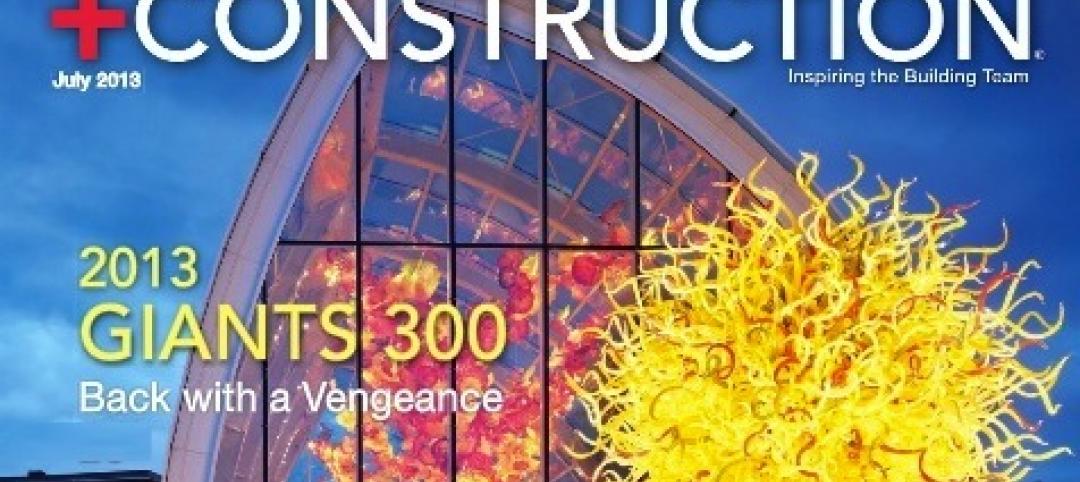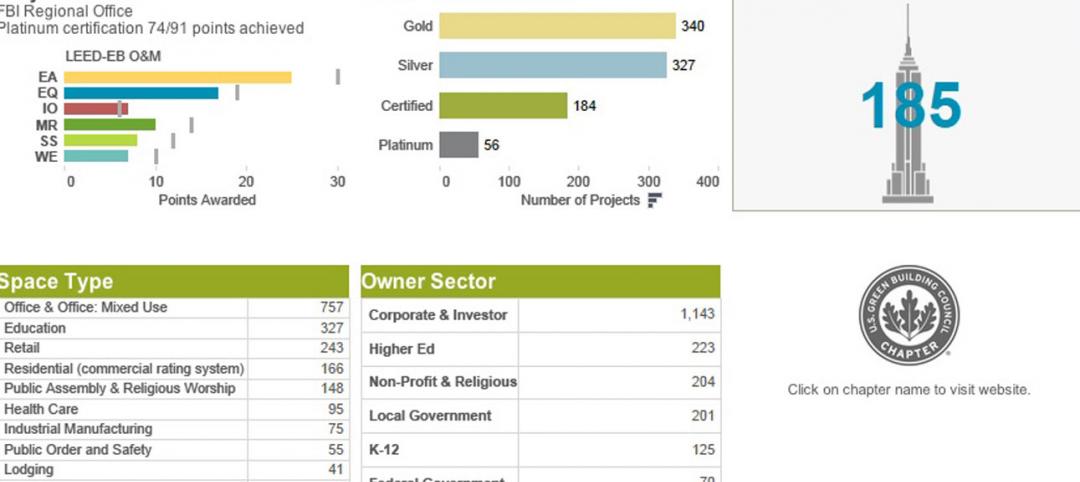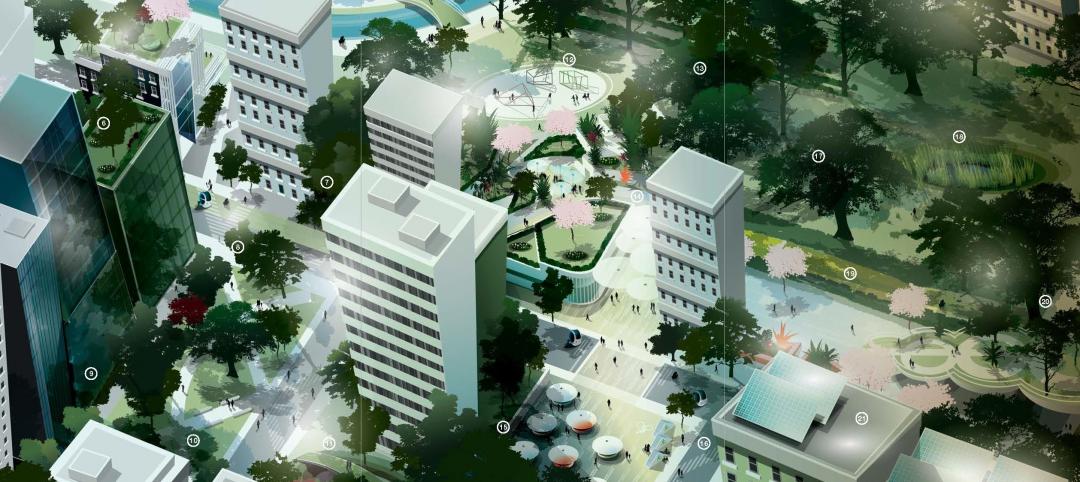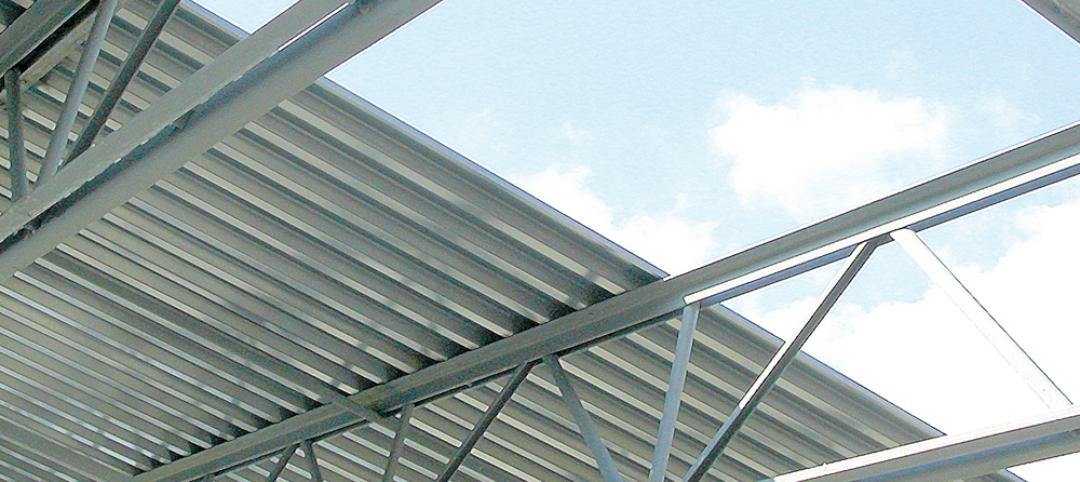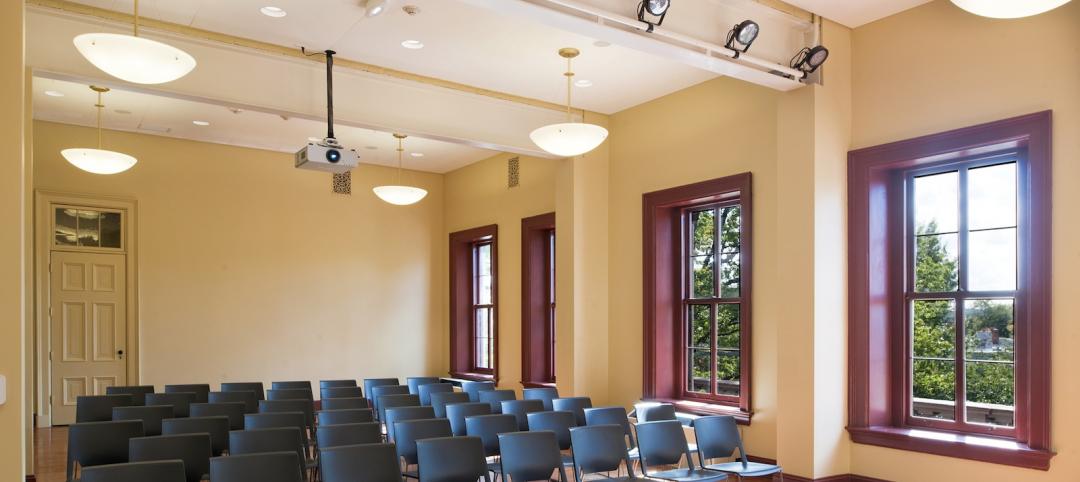In May, the San Francisco International Airport completed the extension of its AirTrain people mover system to its Long-Term Parking area. At that point, the AirTrain provided connectivity between all terminals, parking garages, an on-airport hotel, the city’s subway system, and the airport’s car rental center. Previously transportation between the long-term parking lot and the terminals had been provided by shuttle buses, and AirTrain’s extension is projected to eliminate 600,000 miles of trips annually, according to the airport.
This $259 million project, which launched in August 2016, extends the AirTrain guideways by 1,900 ft to reach the long-term parking lot. The project included the construction of two new AirTrain stations, each of which built under a $172 million progressive design-build contract with Skanska USA and WSP. The first station, located at the on-site Grand Hyatt hotel, opened to the public on October 2, 2019; the second station, with a pedestrian bridge that connects AirTrain to one of two Long-Term Parking multilevel garages, opened on May 5 of this year.
VERY GREEN STOPS
The construction project’s highlights include the installation of a 2,700-panel PV array on the roof of the long-term parking garage that will generate about two-fifths of the stations’ annual power needs. Water-efficient fittings and fixtures will cut the stations’ water use by 40%. Three-quarters of this project’s construction and demolition debris were recycled. The stations’ indoor air quality complies with LEED air quality assessment standards (prior to occupancy).
In total, more the 50 sustainable practices were implemented as part of the construction of the stations, which were certified LEED Gold in September. “Achieving LEED Gold certifications demonstrates our commitment to employing sustainable practices on every project we undertake,” said Tony Taddeo, Senior Vice President of Operations for Skanska USA Civil.
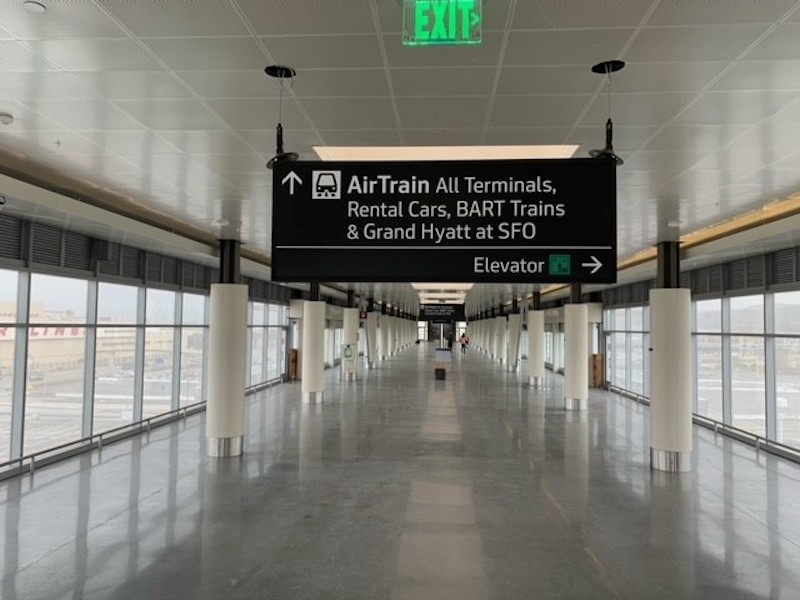
PGH Wong was its construction manager on the AirTrain extension project.
AirTrain, which has been in operation since 2003, currently consists of 41 electric vehicles that run along six miles of fully automated concrete guideways.
Related Stories
| Jun 2, 2014
Parking structures group launches LEED-type program for parking garages
The Green Parking Council, an affiliate of the International Parking Institute, has launched the Green Garage Certification program, the parking industry equivalent of LEED certification.
| May 29, 2014
7 cost-effective ways to make U.S. infrastructure more resilient
Moving critical elements to higher ground and designing for longer lifespans are just some of the ways cities and governments can make infrastructure more resilient to natural disasters and climate change, writes Richard Cavallaro, President of Skanska USA Civil.
| May 20, 2014
Kinetic Architecture: New book explores innovations in active façades
The book, co-authored by Arup's Russell Fortmeyer, illustrates the various ways architects, consultants, and engineers approach energy and comfort by manipulating air, water, and light through the layers of passive and active building envelope systems.
| May 19, 2014
What can architects learn from nature’s 3.8 billion years of experience?
In a new report, HOK and Biomimicry 3.8 partnered to study how lessons from the temperate broadleaf forest biome, which houses many of the world’s largest population centers, can inform the design of the built environment.
| May 13, 2014
19 industry groups team to promote resilient planning and building materials
The industry associations, with more than 700,000 members generating almost $1 trillion in GDP, have issued a joint statement on resilience, pushing design and building solutions for disaster mitigation.
| May 11, 2014
Final call for entries: 2014 Giants 300 survey
BD+C's 2014 Giants 300 survey forms are due Wednesday, May 21. Survey results will be published in our July 2014 issue. The annual Giants 300 Report ranks the top AEC firms in commercial construction, by revenue.
| Apr 29, 2014
USGBC launches real-time green building data dashboard
The online data visualization resource highlights green building data for each state and Washington, D.C.
Smart Buildings | Apr 28, 2014
Cities Alive: Arup report examines latest trends in urban green spaces
From vertical farming to glowing trees (yes, glowing trees), Arup engineers imagine the future of green infrastructure in cities across the world.
| Apr 9, 2014
Steel decks: 11 tips for their proper use | BD+C
Building Teams have been using steel decks with proven success for 75 years. Building Design+Construction consulted with technical experts from the Steel Deck Institute and the deck manufacturing industry for their advice on how best to use steel decking.
| Apr 2, 2014
8 tips for avoiding thermal bridges in window applications
Aligning thermal breaks and applying air barriers are among the top design and installation tricks recommended by building enclosure experts.


